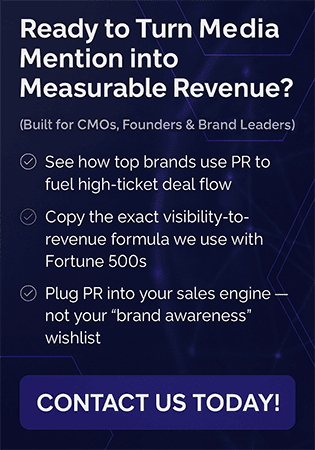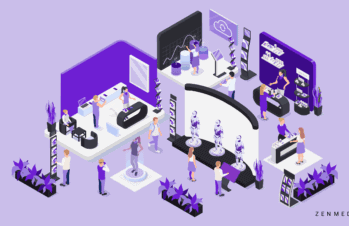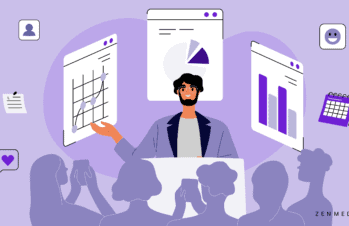Let’s get right to it: Event marketing has undergone a major overhaul over the past few years.
In fact, 49% of CMOs believe events are more important than they were pre-pandemic. And with 57% of event organizers witnessing increased attendance at in-person events over the past year, it’s clear that in-person events are making a powerful comeback.
And it’s not just organizers who are witnessing this shift—78% of attendees say connections made at in-person events provide them with the best networking opportunities. This makes strategic event planning more essential than ever for brands looking to make meaningful connections with customers, vendors, and partners in 2025.
The most successful events today are carefully orchestrated, unique-to-your-brand experiences that leverage a SoLoMo (Social, Local, Mobile) approach to maximize engagement and ROI.
So, whether you’re planning a trade show presence, launching a new product, or creating a branded event series, this comprehensive guide offers proven strategies to drive engagement, generate qualified leads, and create lasting brand connections at in-person events in 2025 and beyond.
Related reading: Mastering SoLoMo: Essential Strategies for Effective Marketing in 2025
Strategic Event Planning: Format Matters
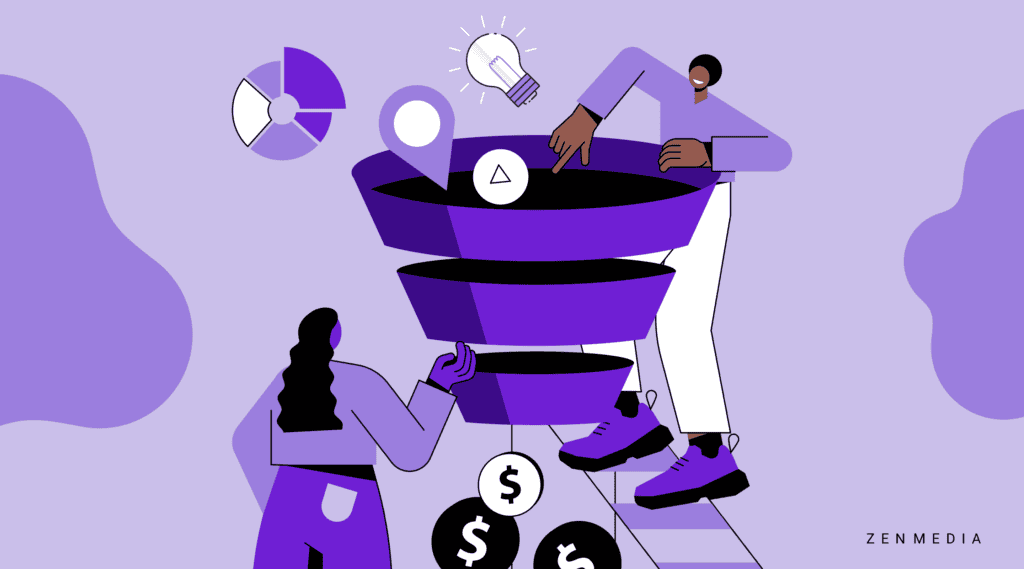
Before diving into event logistics, smart marketers determine which event format best aligns with their business objectives.
Are you running targeted campaigns? Trying to engage customers or build meaningful relationships with partners? Are you looking to nurture leads and reach prospective customers? From trade shows to proprietary events and partnership opportunities, each different event type offers distinct advantages and requires specific planning approaches.
Here’s our advice on achieving event success:
Trade Shows: Amplifying Your Industry Presence
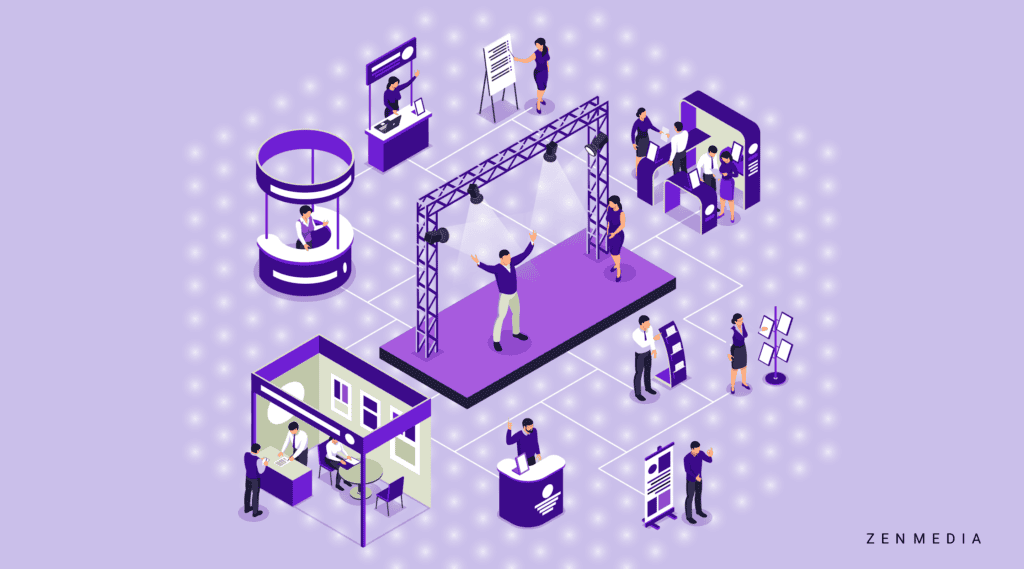
For companies like Elation Lighting, trade shows offer unmatched opportunities to showcase innovations within relevant industry contexts.
When Elation needed to maximize impact at LDI (the lighting industry’s premier event), they worked with our team to develop a comprehensive B2B marketing strategy that transformed a standard booth into a powerful brand momentum builder.
Our approach included strategic PR campaigns that highlighted Elation Lighting’s innovations within the industry, digital brand amplification across multiple social media platforms, and carefully orchestrated product demonstrations that consistently drew crowds and created natural networking opportunities.
The results? A 500% increase in impressions, 5x increase in booth attendance, and winning the prestigious 2024 Best Debuting Product award.
By taking advantage of booth demonstrations and digital strategies that extended beyond social media posts, Elation Lighting was able to engage attendees at LDI, share promotional materials that reached industry influencers, and garner significant press coverage.
Proprietary Events: Building Your Own Community

When financial services company Pilot.com decided to launch its small, business-focused Entrepreneur Exclusive event series, they looked to us for a different approach.
Rather than participating in existing events, Pilot.com created their own branded experience specifically designed for their target audience. Working with our team, we were able to execute an ambitious marketing campaign designed to meet the criteria for this specific event.
What made this approach particularly effective was how we wove local expertise into every aspect of the event. Instead of flying in speakers from Silicon Valley or New York City, our team tapped into Nashville’s unique entrepreneurial ecosystem. Local success stories and advisers took the stage, sharing insights that resonated because they understood the specific challenges and opportunities of building a business in that market.
But it didn’t stop there. Our team focused on all the details, ensuring our visually appealing branded designs delivered consistent visual identity across all touchpoints. We also leveraged content marketing efforts across email and social media, as well as paid ads, direct mail, and organized giveaways to drive registration and capture our audience’s attention before, during, and after the event.
Partnership Opportunities: Extending Reach Through Collaboration

Strategic partnerships can exponentially increase your event marketing reach in fresh, innovative ways.
Aeroflow Breastpumps showed the power of building strong relationships by partnering with Pumpspotting for their Feel Better, Feed Better tour. Traveling around the country in Barb, the breast express bus, they were able to create an immersive experience that met their audience in cities across the nation.
We helped the Aeroflow Breastpumps team by amplifying their work on social media, sharing event details for each stop of the tour and encouraging followers to meet up in person for expert-led breastfeeding consultations and community building.
Attendee satisfaction was high and the campaign was a success! Not only did parents get a chance to connect, moms who participated in on-site interviews were given squeezable breast-shaped stress balls, which became an instant social media sensation!
This collaboration allowed both brands to share resources, expand their audience reach, and create a more valuable experience for attendees based on community support and fun!
Location Strategy: Why Local Relevance Matters More Than Ever
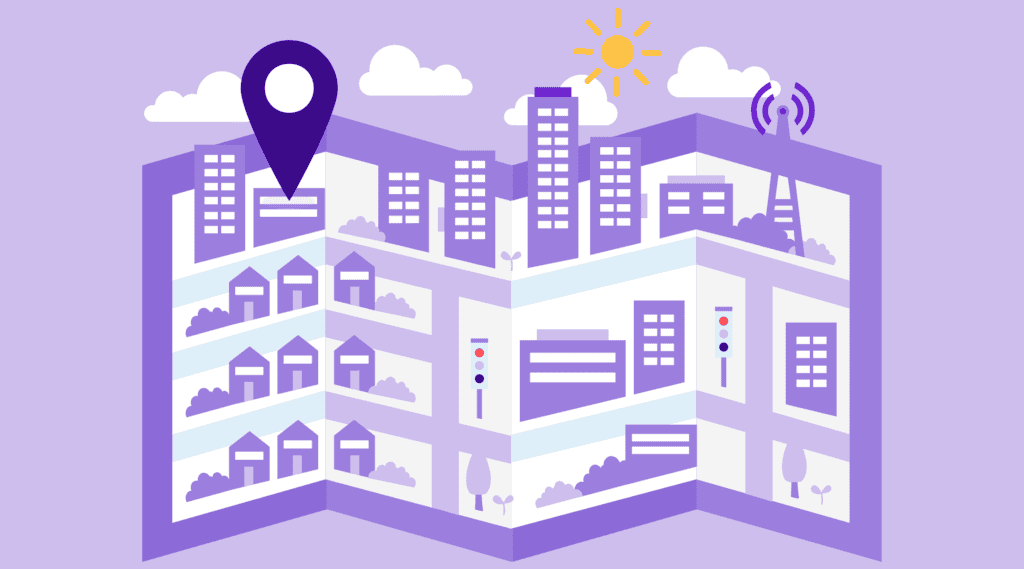
The rise of remote work and networking opportunities, such as virtual or hybrid events, have made local connections even more valuable in recent years.
When selecting an event location, consider these factors:
Market Relevance
Pilot.com didn’t choose Nashville randomly—its CEO understood the city’s small business scene made it the perfect testing ground for their entrepreneur-focused concept. This local knowledge allowed us to create an event that felt authentic rather than a corporate roadshow parachuting into town.
Talent Access
Location determines which speakers, influencers, and partners can easily participate in your event. By featuring local expertise, you create more authentic connections with your audience and demonstrate commitment to understanding their specific needs and challenges.
Audience Convenience
The easier it is for your target audience to attend, the higher your participation rates. Consider transportation options, parking availability, and proximity to business centers when selecting your venue.
Adding virtual elements, like live streaming and webinars available on your event website, complements your campaign, making it more accessible and convenient for event attendees who might not be able to make it in person.
Building Buzz: Multi-Channel Marketing Strategies
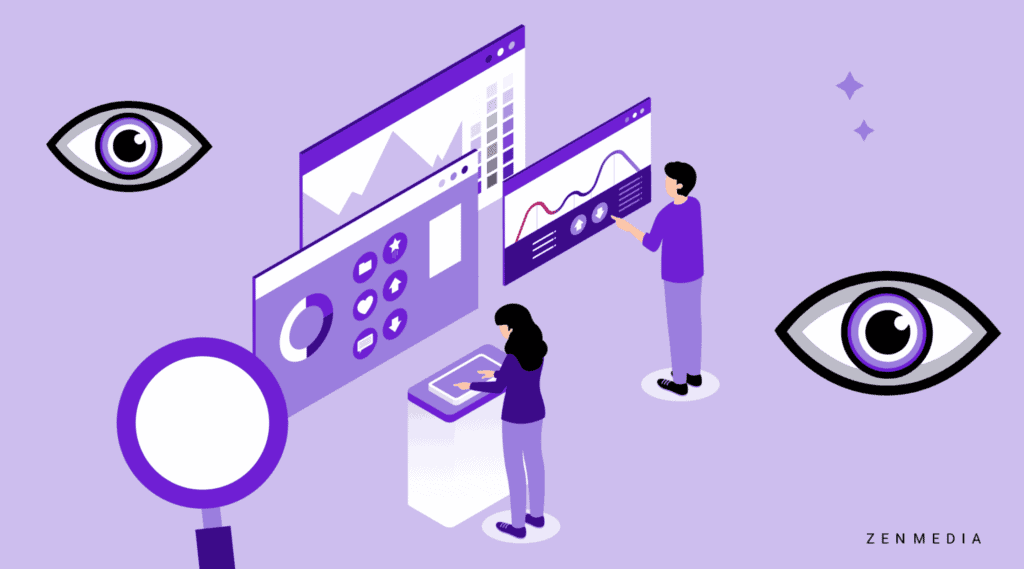
The most successful events build momentum long before doors open. Achieve this by implementing a cohesive, multi-channel marketing approach to drive visibility and attendance.
Strategic Social Media Activation
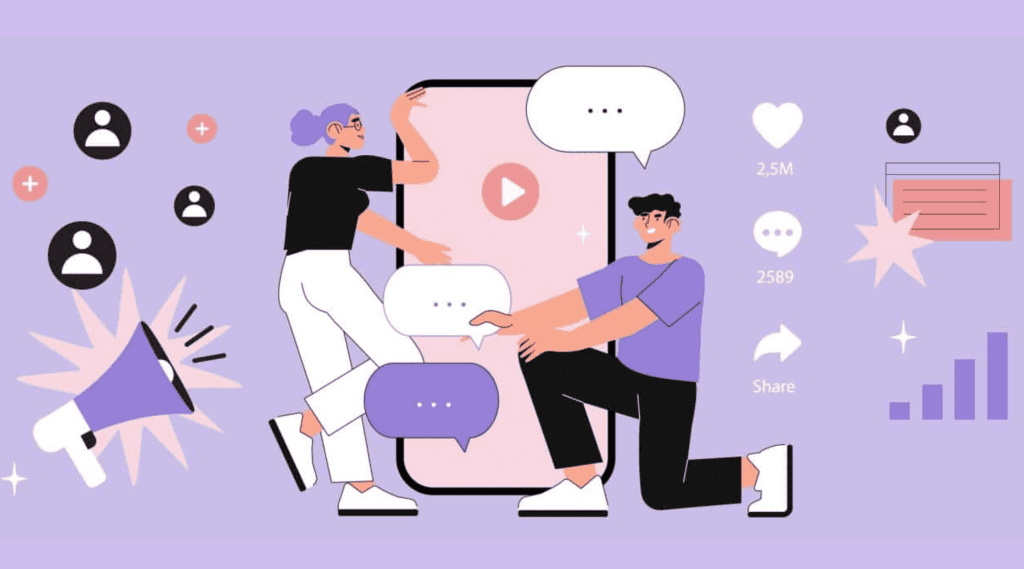
When Elation Lighting needed to generate pre-event excitement, we helped them execute platform-specific content strategies across Instagram, Facebook, LinkedIn, TikTok, and X that delivered 411K+ targeted impressions. Our secret? Creating unique content formats tailored to each platform. This allowed us to increase organic engagement by 593.3% and achieve a 1,768.8% increase in net follower growth among industry professionals.
Paid Advertising That Converts

Geo-targeted advertising allows you to reach potential attendees in specific geographic areas, maximizing your marketing budget efficiency.
For the Pilot Nashville event, our marketing team developed targeted paid ads to reach Pilot.com’s target audience online. This enabled us to focus on a specific geographic market and was complemented by an innovative direct mail campaign to drive registrations.
Email Marketing Sequences
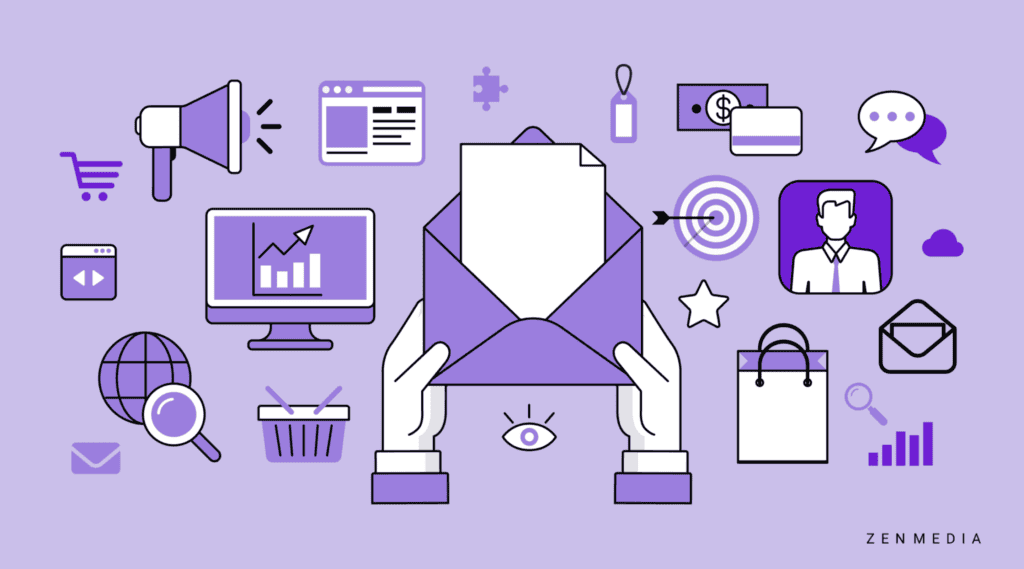
Strategic email sequences should guide potential attendees from awareness to registration, attendance, and beyond.
For maximum effectiveness, segment your email lists based on audience types (potential customers vs. existing clients, executives vs. practitioners) and personalize content accordingly. Adding giveaways and offering exclusive content to recipients after the event ends extends its life and helps you generate interest for future events.
Related reading: Email Marketing Automation for B2B Companies
Experiential Marketing: Creating Memorable, Shareable On-Site Experiences
The physical experience of your event will ultimately determine its success. Every element should be designed with both attendee experience and social sharing potential in mind.
Here’s how to maximize the experience for your attendees.
Environment Design That Draws Crowds
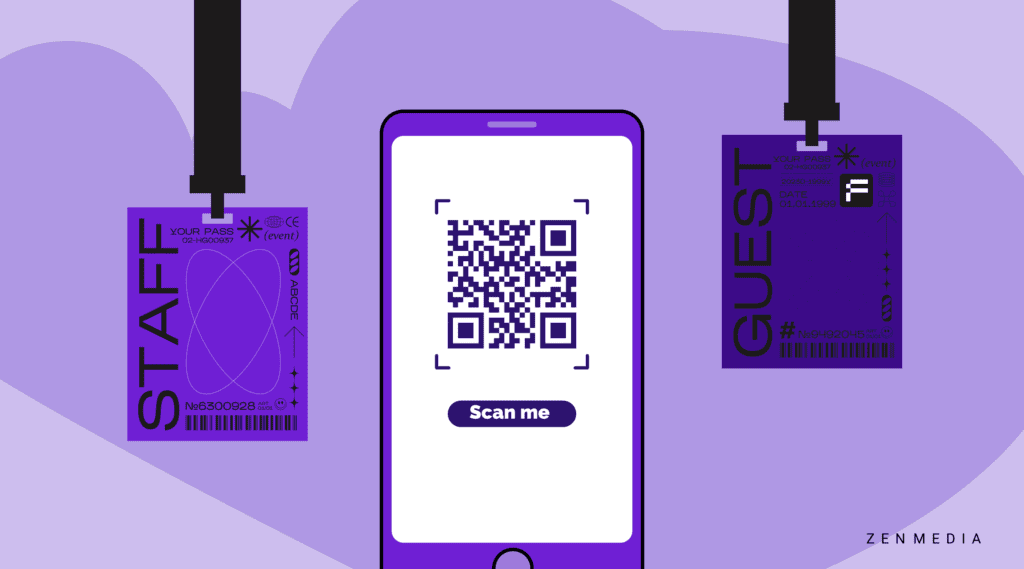
For trade shows like LDI, booth design is critical, but so are takeaways that attendees can access later.
For Elation Lighting, we created VIP badges with QR codes linking to product landing pages and designed educational infographics visualizing lighting technology innovation timelines. These elements not only attracted attendees but facilitated deeper conversations about Elation Lighting’s solutions.
For proprietary events like Pilot’s Entrepreneur Exclusive, consider creating dedicated areas for networking, learning, and content creation. Strategically designed photo opportunities with branded backdrops encourage social sharing, extending your event’s reach beyond physical attendees.
Meaningful Swag That Solves Problems
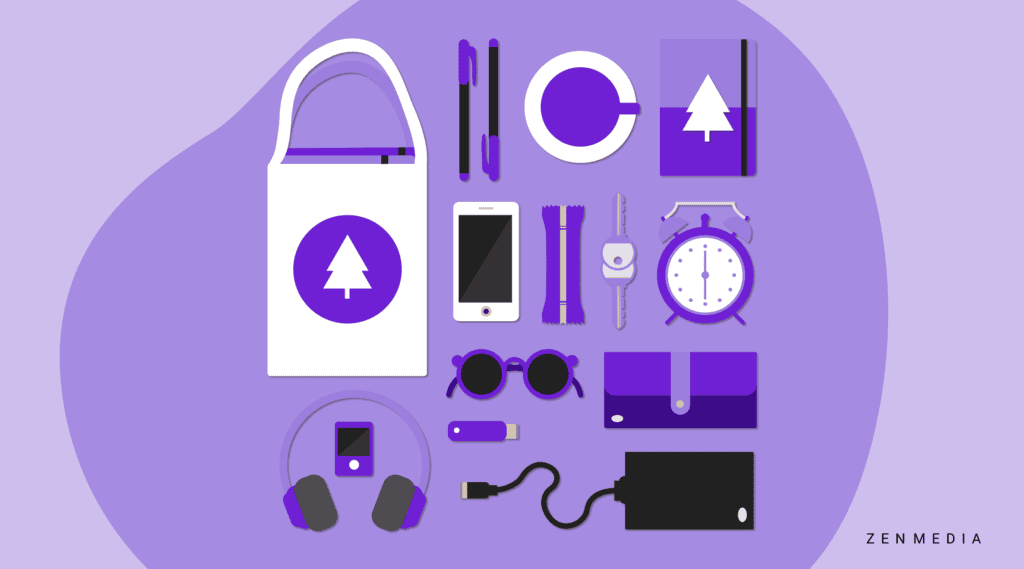
We all have drawers full of forgotten branded keychains and bottle openers. Modern event marketers understand that meaningful takeaways extend the value of your event after it ends—without collecting dust.
Aeroflow Breastpumps’ cleverly themed breast-shaped stress balls are just one example of sharing meaningful merch. In fact, many moms eagerly participated in video interviews just to get their own quirky stress ball!
Elation Lighting’s badges didn’t just contain helpful information, they showcased the brand’s logo throughout the event, appearing in multiple photos and videos over the course of the event. Pilot.com added a competitive edge to their event with a giveaway that offered one lucky attendee the chance to promote their brand on an iconic Nashville billboard.
What does meaningful swag look like for your industry? If you’re in professional development, consider offering exclusive access to a specialized training module. Real estate firms might provide personalized market analysis reports. Tech companies could demo and offer priority access to beta features. The truth is, the opportunities are endless! Be creative and think about the meaningful value you can provide your attendees.
Programming That Delivers Value
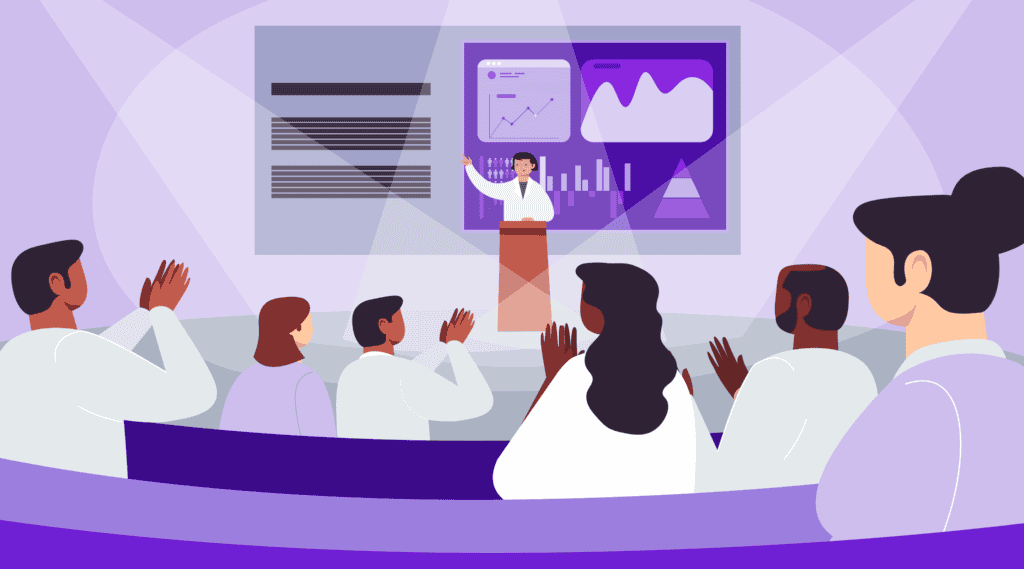
The most successful event programming balances educational content with networking opportunities.
When selecting speakers, prioritize those who can provide actionable insights relevant to your specific audience. Interactive formats like panel discussions, Q&A sessions, and workshops typically generate higher engagement than traditional presentations.
Pilot’s Nashville event featured local success stories who shared insights specific to the Nashville market, allowing attendees to ask questions and receive authentic, actionable advice. This approach created an event that felt less like a corporate roadshow and more like a gathering of neighbors who happened to be business experts.
Reaching Event Goals: Measuring Success and ROI Optimization
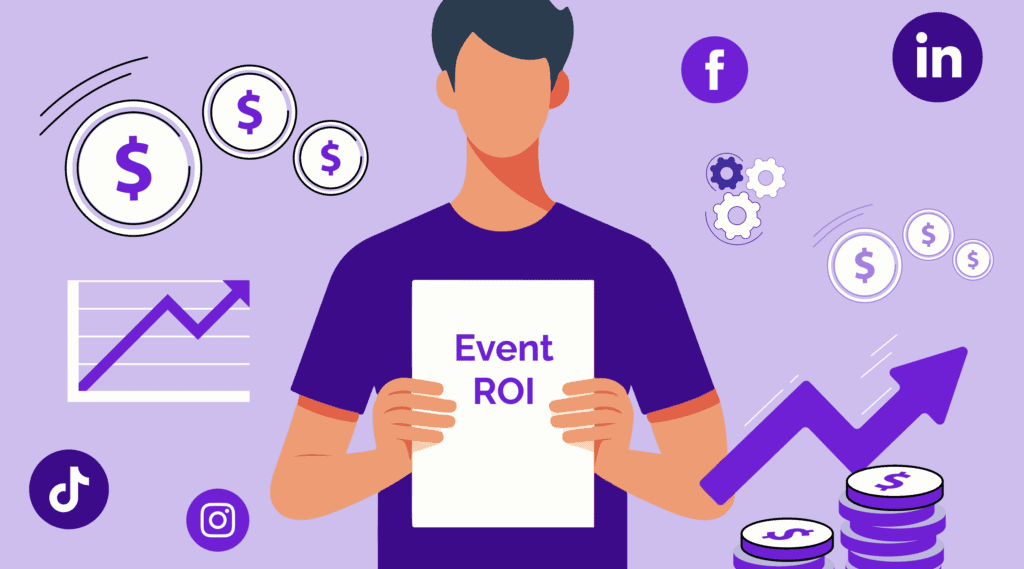
Not everything that’s meaningful is measurable—but if you can’t measure it at all, you can’t improve it.
Smart event marketers implement comprehensive measurement strategies that track engagement throughout the attendee journey. Here’s what to look for:
Setting Meaningful KPIs
Before your event, establish clear, measurable objectives that align with your business goals. These key performance indicators (KPIs) might include:
- Qualified leads generated
- Sales pipeline value created
- Social media engagement metrics
- Brand awareness lift
- Direct conversion rates
For Elation Lighting’s LDI campaign, success metrics included business impact metrics like winning the 2024 Best Debuting Product award, a 5x increase in qualified sales opportunities, and 83K total sessions on their website. They also tracked industry recognition through consistent crowd formation at product demonstrations and increased social media exposure through industry influencers.
Implementing End-to-End Tracking
Measurement efforts need to start well before your event.
Smart event marketers use specialized landing pages for paid ad campaigns and social posts with unique UTMs, along with targeted follow-up sequences based on attendee behavior.
For the Pilot Nashville event, our team developed a branded landing page as the central information hub, allowing us to track registrations and engagement throughout the promotion cycle. This comprehensive approach enabled us to surpass Pilot’s RSVP target goal by 20% and generate over 100 qualified leads.
Post-Event Analysis
Don’t focus solely on day-of metrics like attendance numbers or lead collection.
Instead, track post-event engagement patterns to understand your event’s full impact. Use social listening tools to monitor how attendees discuss your brand afterward. Do they implement what they learned? Have they connected with other participants? Will they engage with your content differently than before?
This is important information that you’ll want to keep track of.
Related reading: Dark Social: What It Is, How to Track It, and Why It Matters for B2B
The Future of B2B Event Marketing
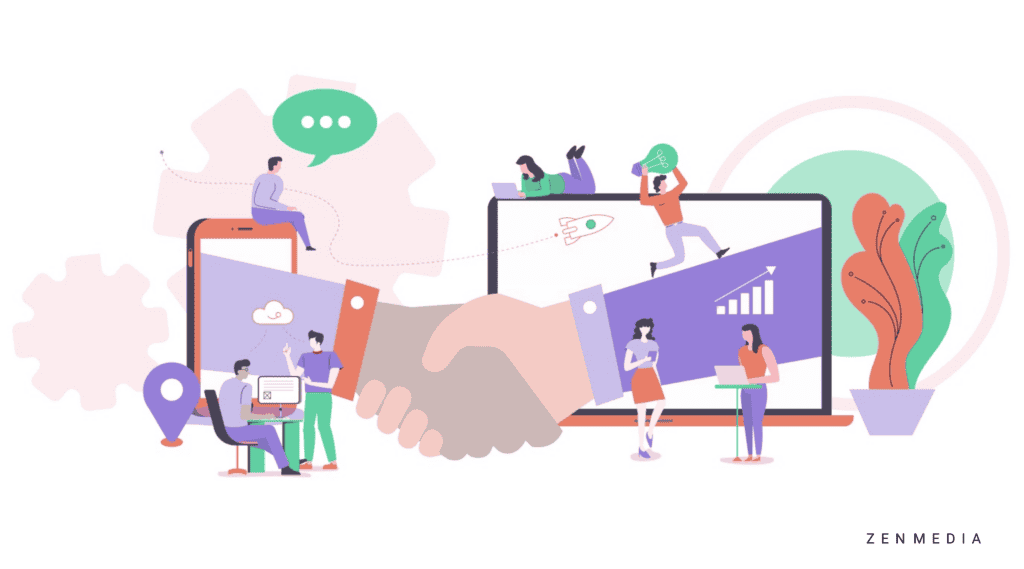
As event marketing continues to evolve, several trends are shaping its future:
AI-Enhanced Personalization
While face-to-face connections remain irreplaceable, AI technologies are enhancing personalization capabilities. Smart event marketers are using AI to create more tailored attendee experiences while maintaining authentic human connections.
Community Building Focus
The most successful events foster ongoing communities rather than one-off experiences. This selective approach to partnerships and relationship-building ensures that collaborations align with a B2B’s core values and provide mutual benefits.
Replicable Event Frameworks
Forward-thinking companies are developing standardized event formats that can be customized for different markets. We designed Pilot’s Entrepreneur Exclusive series to be 100% customizable and replicable across markets, allowing them to scale their event strategy efficiently while maintaining local relevance.
Mastering Corporate Event Marketing Strategies in 2025

The resurgence of in-person events offers unprecedented opportunities for brands to create meaningful connections with their audiences. By embracing a SoLoMo approach to event marketing, companies can maximize engagement, generate qualified leads, and build lasting brand relationships—but it doesn’t end there.
Whether you’re planning a trade show presence, launching a proprietary event series, or seeking strategic partnerships, success requires thoughtful planning, multi-channel promotion, memorable experiences, and comprehensive measurement. By following the strategies outlined in this guide, you’ll be well-positioned to create events that not only meet but exceed your business objectives in 2025 and beyond.Looking for expert guidance on your next event marketing initiative? Our team of B2B marketing and event planning specialists can help you develop and execute a comprehensive strategy tailored to your specific goals and audience. Contact us today to learn how our digital marketing experts can help you create events that drive real business results.


